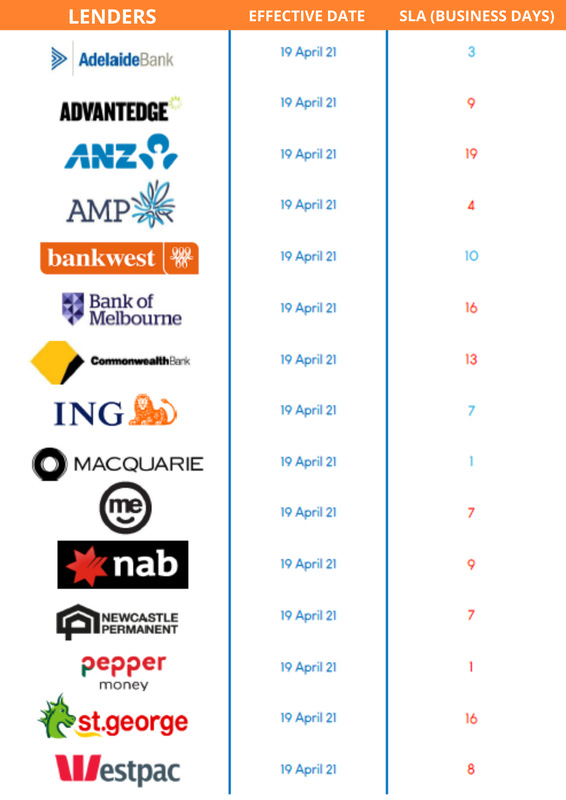|
Investment in real property, such as residential real estate, is likely to be a process requiring great consideration and thought, and one that usually involves a plan for the long term. To ensure you have considered what is required before making the big purchase, we’ve outlined a few steps you might want to take in that process.
1. Make the commitment A property investment must be a long term commitment in order for it to be worthwhile, so the very first step is to ‘do the numbers’ in order to evaluate your budget, potential constraints and future financial and personal obligations including the potential impact on family members. “Consider your future as far ahead as you can,” said one of my industry colleagues. “You need to assess your ability to maintain or improve personal income as well as your commitment and ongoing financial capability to continue to service the financial impact of the investment for a minimum of five to ten years, as that’s what generally brings premium results.” You need to also make the commitment to ‘manage’ the investment – even if you outsource the day-to-day tasks involved including locating suitable tenants, collecting rents, paying relevant costs in rates and taxes as well as ensuring that the property’s repairs and maintenance are kept up to date. In short, make sure you have a great property manager! 2. Obtain Professional advice You now need to obtain professional advice. An investment in real estate is likely to be significant in relation to your current financial position. If you have already discussed the investment with a licensed financial planner or investment adviser and residential real estate is considered the most appropriate in your current circumstances, you will have considered aspects including rental return, maximum capital growth and/or tax effectiveness. 3. Get help with finding that right property if you need it! You next need to locate a suitable property. There are buyers agents now available who can assist you in this process – potentially saving you money by disregarding inappropriate properties and concentrating on those that are more likely to deliver the highest return and capital increase to you over time. A good buyers agent will negotiate with the agent on your behalf (who doesn't love that!), as well as terms, and assist with final inspections and the like. 4. Consider the equity you will contribute Following that, unless you have cash or other investments that can be converted to cash to make your property investment, the next step is to contact a mortgage broker to help you to secure finance to enable purchase. This will give you the opportunity to ask the broker as many questions needed to alleviate any uncertainty you may have about securing that finance, and make sure that the proposal is balanced, and suitable to your needs, along with making sure that your finances are in order to support the proposal. 5. Have your team sorted! Using the services of a mortgage broker, accountant, financial planner, solicitor/conveyancer and property manager on your team will also assist you in coming to your decision, and to make sure the decision, is a good one for the longer term. And, if you don't know where to start with this, we do, reach out! 6. Assistance from relatives & friends Talking to friends, family and acquaintances who have already made such an investment, or are currently considering one, can help your awareness of stumbling blocks and potential issues that you might otherwise miss. While any issues you face may seem new, it can help to bounce these off a trusted friend or relative who has been there before. 7. Collate your information In order to apply for finance, you will need proof of your current income, employment and your assets as well as all liabilities including debts, loans, rental payment, outstanding credit card obligations and any other due payments, for example, buy now pay later commitments. Collate these and also any paperwork that helps support your personal position. For example, if you have been a long-term tenant, get a 12-month tenancy statement that proves your capacity to make regular repayments. Before applying for a loan, minimise your current debt load, and if possible, reduce the limit on, or cancel any credit cards you have, as this is perceived by lenders as potential for debt. It is strongly recommended that you have a fully assessed pre-approval before you start your search. This will allow you to know what your financial limits are so that you can make an offer when you’ve found a property you like. 8. Other things to consider An investment property purchase should not be an emotional decision. It is a business decision. Consider the property's appeal to the type of individual who wants to reside in the area, and speak to a reputable property manager to find out what kind of properties are the most sought after, and accordingly rental yield the greatest results in the area you are looking for. Interested to know more? Feel free to reach out, book a meeting and let's chat (because I am home all the time... and I miss people, any excuse will do!) With the rapid increase in the number of mortgage lenders offering home loans to consumers, the process is even more complicated than in years past. Fortunately, Get Smart Financial is here to help. We have regular contact with a wide variety of lenders, some of whom you may not even know about. Working with us can save you time! Purchasing a property can be a life-changing experience but the home loan application process can be really daunting if you’re new to the process. We can prepare your application on your behalf and mitigate the risks in your request. See below banks for the current turnaround times. Note: Recently updated SLAs are highlighted in Red
If you have any questions, book in a time with me below. Breakups are hard.
Yep, you heard it, I am breaking up. With my bank. The bank may think it’s me, but, I know it is the bank. No bias intended, but I know. I was going to explain to the bank where they went wrong, and there were a few things I could have mentioned, but I need to be out of the relationship now, and I need to focus on me, and not them. It’s time for a clean break. You see, they are stuck in their ways, their communication is not great, and I need to feel appreciated, not just when things are good and the sun is shining! When the idea crystalised, to be honest, I was a little put out. On reflection, I feel like my bank and I have been circling around this for a long time, and perhaps I have been a little distracted with life and goals, and parking it in the too hard basket… maybe even a little procrastination, reflecting on the good times we have had. But, the time is now, and I need to be kind (thanks Matthew Hussey). We are not going to argue about this, I won't be baited with sweeteners, incentives, short term waiver of fees, after all is done, let’s not be angry with each other. I don’t need to come out of this being liked, it’s business! I don’t want to give the bank hope, and I need to make a clean break, my ego doesn’t need to keep the connection. No, I am not going to buy into your cushy and cute marketing campaigns, the pretty colours, or the short-lived attention! And no, there is no reconciliation in the forward view. Now, in all seriousness, I should have looked this in the eye sooner. The truth is, while I was focussed on forward progress, my finances really needed some housekeeping, and I should have attended to this sooner, as my forward goals might have progressed even faster, if the engine was running smoother! You see, the car is your finances, and how well it runs determines how efficiently you get from where you are now, to where you want to be, and beyond. So, let’s start looking at our finances, our banking relationships, more like financial transactions. Make sure that you are getting what you need out of the relationship, and assessing more often, and making the cut, the call, without emotion, if you are not getting what you want and need. Ring me for a chat, let’s talk about your bank, and let’s keep you progressing, making sure you are getting everything you need out of your banking relationship, not just your bank getting what it needs! So, call me, I am getting good at breakups, and I am happy to share! 😂 The Australian government has announced an additional 10,000 First Home Loan Deposit Scheme places to be provided in the coming months!
This is a massive boost to first home buyers and will help save them tens of thousands in LMI and reduce the amount of deposit needed to buy their first home. Read more: http://ow.ly/8NMD50BKiTD The last two rounds offered this year were all filled up so better hurry! Are you a First Home Buyer, or know a First Home Buyer we can help? We can help get you into your new home faster, so let's have a chat! Financial markets have been anticipating a 50% chance of the Reserve Bank of Australia cutting the official interest rates even further this year. It didn’t happen today, as the Reserve Bank of Australia has decided to keep interest rates on hold. It remains at the record low of 0.25%.
Federal Budget What economic measures will be taken to deal with the downturn caused by COVID-19 will be known after tonight’s Budget announcement. It is expected to include a number of measures aimed at both households and businesses in order to encourage them to spend and invest. Tax cuts Income tax cuts are expected to be front and centre. The government will bring forward tax cuts that were to start in mid-2022 – they will now start in July this year. Under the proposal, the top threshold of the 19% tax bracket will rise to $45,000 and the top threshold of the 32.5% bracket will rise from $90,000 to $120,000. What does this mean for the average Australian? For workers earning around $50,000 a year, the $1080 per annum tax cut that was scheduled for 2022 will be brought forward. Furthermore, this cut will be backdated to this financial year, beginning from July. They should see around an extra $30 in their pockets by December. For those earning $120,000 or more, the tax cut will be worth up to $70 a week until July 1, 2021. The maximum tax cut of $2500 in 2022 will provide around $50 a week but will be increased for the remaining weeks of the financial year. The government hopes this will encourage spending in the lead-up to Christmas, and therefore turbocharge the Australia economy. Business boost The government is also expected to offer businesses some relief. It’s not clear exactly what will be announced this evening, but is predicted to include asset write-offs and a cut to the corporate tax rate. These and other announcements, combined with the record low interest rate, should be good news for mortgage holders. If you have any questions, please don’t hesitate to contact us. Considering refinancing is a great opportunity to secure a better interest rate to your existing home loan. It can be a bit of a process, so it's best to understand a little more before jumping in... having said that, it is often well worth the hoops!
Here's a step-by-step guide to get your refinancing sorted: Step 1: Understand the need to refinance and the most common reasons for refinancing:
Knowing your 'why' makes it easier to find a new loan that fits you best. Step 2: Home loan options comparison When considering refinancing, you want to make sure you're shifting to the best new loan for the reasons that are most important to you. Make sure to seek guidance and direction in terms of the rate and features to ensure you have considered all of the important elements. You can speak with a mortgage broker, talk to lenders, or check out some comparison sites to be sure you're comfortable with your choice before you apply or transfer your home loan. Make sure to seek details regarding the conditions of your loan, features added and removed, or how long the settlement will take when refinancing. Step 3: Crunch the numbers Refinancing comes with a variety of costs. There are upfront fees to the new loan, exit fees to the old loan, and mortgage registration fees to the government, and they all need to be considered into the viability and feasibility of the proposed changes. Keep in mind that your new loan term will likely start all over again. Make sure to calculate exactly the amount of interest you can expect with your new loan and compare with your current loan to know if it's worth it to refinance. Once you have all the figures, sum it all up to be sure that refinancing outweighs all costs. Step 4: Applying for a new loan Refinancing your existing loan will mean completing paperwork just like your current loan. You will need to provide a proof of income such as payslips and your IDs. Step 5: Valuation Make sure you understand how the valuation works because in refinancing, the new lender will want to value your home. Make sure to spruce things up before assessment as there are lots of small things you can do to maximise your property's market value. Step 6: Loan approval Formal loan documents will be drafted and forwarded to you for signing once your application is approved. Be keen and read the paperwork carefully and don't hesitate to speak with your mortgage broker if you have any questions, they'd love to chat! Step 7: Settlement On the settlement day, your new lender will receive the title deeds to your home, which was previously held by your old lender. All you have to do is enjoy your new loan! With these refinancing tips, you could be in your new loan within 4 to 6 weeks! Interested to know more about refinancing and don't want to worry about all the finer detail, and want an expert to look after it all at no cost to you? Feel free to reach out, book a meeting and let's chat, it's what we are good at(because I am home all the time... and I miss people, any excuse will do!) |
AuthorRachael Bland – Founder & CEO Archives
February 2024
Categories
All
|
|
Privacy | Credit Guide | FAQs | Calculators
T: 0421 73 88 30 | E: [email protected] Credit Representative Number: 427013 | Australian Credit Licence Number: 391237 | MFAA Accredited Credit Advisor 150638 | Copyright © 2019 Get Smart Results Pty Ltd |
Website by Mint Creative Circle
|








 RSS Feed
RSS Feed
